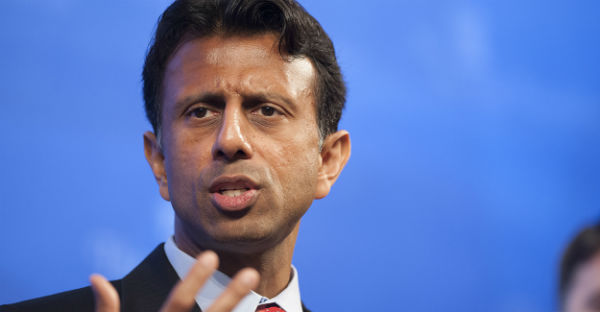 Bobby Jindal, the presidential candidate from Louisiana, is unable to garner support from fellow South Asians despite being the first Indian American to run for president. His endeavor is mocked and questioned by fellow Indians. Many South Asians do not acknowledge Jindal’s identity politics. Early in 2003 when Jindal decided to run for office, he was a hero among Indian Americans. He was a Republican while others were Democrats. But there is no doubt that people took pride in his political success.
Bobby Jindal, the presidential candidate from Louisiana, is unable to garner support from fellow South Asians despite being the first Indian American to run for president. His endeavor is mocked and questioned by fellow Indians. Many South Asians do not acknowledge Jindal’s identity politics. Early in 2003 when Jindal decided to run for office, he was a hero among Indian Americans. He was a Republican while others were Democrats. But there is no doubt that people took pride in his political success.
The chairman of US India Political Action Committee (USINPAC), Sanjay Puri remembers Jindal as a whiz kid and very intelligent. When Jindal announced his interest to run for Congress, it was a ‘moment of pride’ informed Puri. Apart from organizing fundraisers, Jindal was given a platform to connect to community across the country. Jindal was introduced to some of the big names in the country, and India Americans irrespective of their political favors wrote checks for Jindal, informs Puri.
In 2008, Jindal became the governor by creating history being the first Indian American to do so. But the pride quickly faded away as many consider him a huge disappointment. The complaint was that despite taking away funds he always underplayed his cultural identity. His speech on hyphenated Americans hurt the sentiments of the Indian community. He was branded a “sellout” and people even mocked at him at social networking sites.

 The National Security Agency’s Surveillance programs were alienated until now by presidential candidates, but the scenario is quickly changing now. The ISIS attack on Paris has given a new dimension to national security and electronic privacy. The former Florida governor Jeb Bush sought a restoration of the metadata program as it expires in a few months that is a part of the Patriot Act. He added that it is a safety tool. The NSA program stores hundreds of thousands of phone records and Obama passed a law that will now remove data from the government’s clutches that will happen later this month.
The National Security Agency’s Surveillance programs were alienated until now by presidential candidates, but the scenario is quickly changing now. The ISIS attack on Paris has given a new dimension to national security and electronic privacy. The former Florida governor Jeb Bush sought a restoration of the metadata program as it expires in a few months that is a part of the Patriot Act. He added that it is a safety tool. The NSA program stores hundreds of thousands of phone records and Obama passed a law that will now remove data from the government’s clutches that will happen later this month.